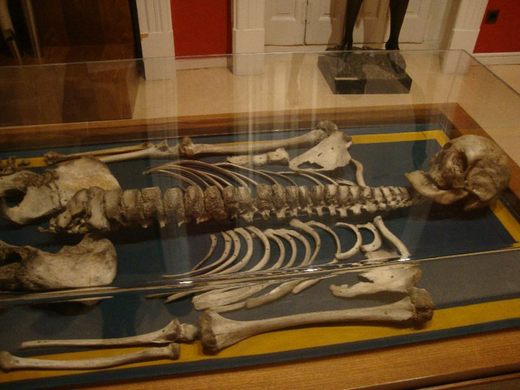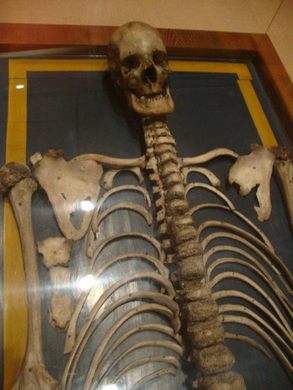AGUSTÍN LUENGO CAPILLA WAS BORN in the year 1849 in Puebla de Alcocer, a city in Extremadura, western Spain. He was known by the nickname of “el gigante de Extremadura” because he was one of the tallest Spaniards of all time, reaching a remarkable height of 7 feet and 8 inches (2 meters, 35 centimeters).

Luengo was born into a very humble family, but his unique stature led to an unordinary life. At the age of 12, he went to work in a circus exhibiting his enormous hands, which are said to be capable of hiding a loaf of bread.

Around that time the National Museum of Anthropology was being established in Madrid. The museum was headed by Dr. Pedro González Velasco. When the professor noticed of the existence of the giant, he contacted him, and they came to an agreement: the professor would buy Luengo’s corpse in exchange for a daily income of 2.50 pesetas while he lived. Upon his death, the remains would become part of Dr. Velasco’s collection and would be displayed forever in his museum.

Sadly, the giant of Extremadura didn’t enjoy his life annuity for long. He was diagnosed with advanced joint tuberculosis and died in Madrid on December 31, 1875, at the young age of 26. Today his large skeleton is displayed at the National Museum of Anthropology in Madrid, along with a plaster cast of his body made by Dr. Velasco.
